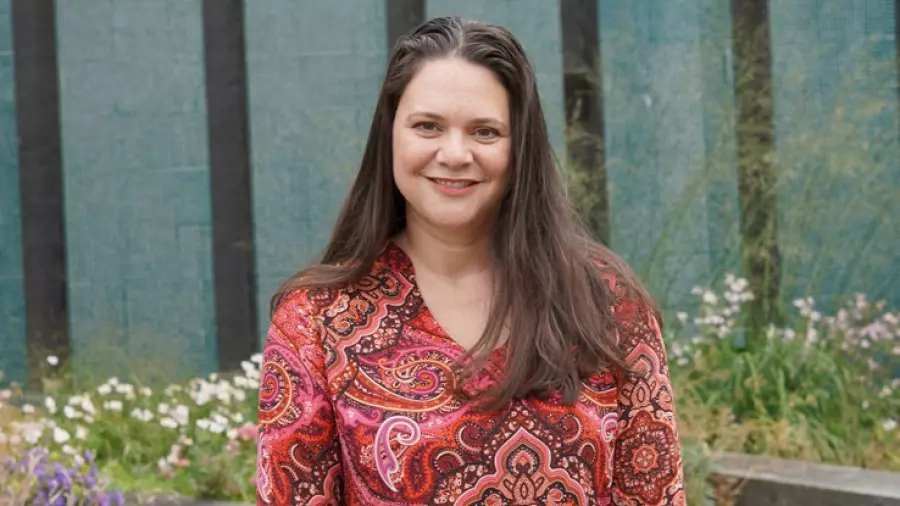
Tara Kolar Bryan je badatelka v oblasti veřejné správy na University of Nebraska at Omaha, kde se zabývá rolí neziskových organizací. V České republice strávila celý akademický rok v Brně na Ekonomicko-správní fakultě Masarykovy univerzity. Jaké jsou její zkušenosti z Česka a co jí pobyt s rodinou v zahraničí přinesl?
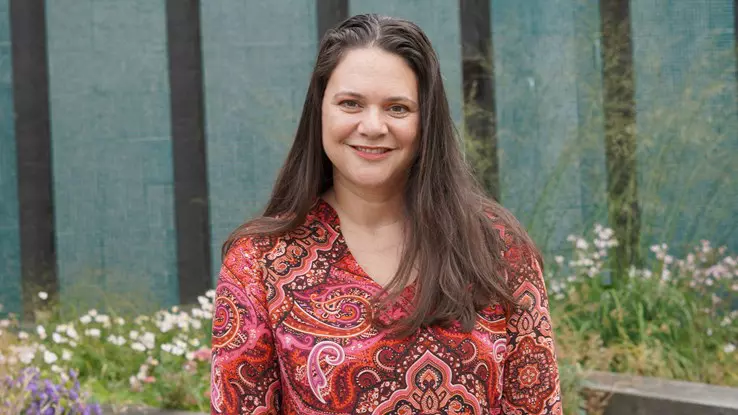
Tara Kolar Bryan is an Associate Professor of Public Administration at the University of Nebraska at Omaha. Together with her husband Ben and two daughters Juliana and Vivian, she spent the whole academic year of 2021/2022 in the Czech Republic, studying Czech NGOs as a Fulbright scholar hosted at the Faculty of Economics and Administration of Masaryk University in Brno.
The preliminary findings from her research suggest that: "Czech NGOs are internally focused; that is, they prioritize the perspectives of staff and beneficiaries in decision-making... [and] provide a significant number of services and community support in the Czech Republic..." However, the Czech NGO sector struggles with lack of visibility and its reputation is: "not as positive as one would expect."
On a personal level, Tara and her husband have enjoyed experiencing their international stay through their children's eyes. One of the favorite conversation topics in the family is where their daughters want to study abroad when in college.
What was her experience?
When I began exploring the Fulbright Scholar Program, I never imagined that I would find an opportunity that aligned so perfectly with my research interests and expertise. My experience as a Fulbright-Masaryk Scholar in Nongovernmental Organization (NGO) Management enabled me to do what I love: research and teach about NGOs' valuable and essential work. In this blog post, I provide an overview of my Fulbright experience from two vantage points: my research activities and the relationships that I developed in the Czech Republic.
I study the types of organizations often defined by what they are not. For example, “nongovernmental organizations” (NGOs) are distinguished as apart from the government in the Czech Republic. In the United States, these organizations are called "nonprofit organizations", being differentiated from private, for-profit firms. Regardless of how they are identified, NGOs are mission-driven organizations that promote the public good in various areas, such as human and social services, environmental protection, religious expression, community building, human rights, and the arts.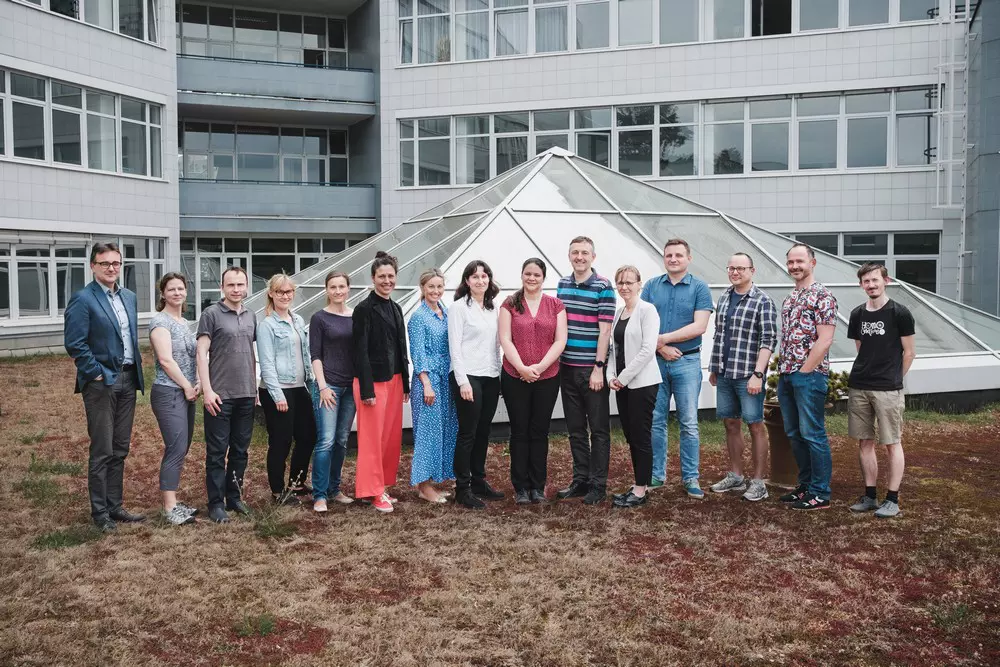
Photo: Tara, with her colleagues at the Faculty of Economics and Administration, May 2022, at Masaryk University, Brno.
In my research I seek to understand how NGOs achieve their missions and social impact. To address the "how" questions, I research nonprofit capacities – the resources, processes, and practices that enable NGOs to be effective. I was eager to expand my research to the Czech Republic because of the exponential growth of NGOs over the last 30 years since the Velvet Revolution. I wanted to assess their capacities to do the work and to understand who NGO leaders prioritize in their decision-making (e.g., beneficiaries, staff, donors, funding entities, community). To do this, I fielded a survey of NGO leaders and conducted qualitative interviews with them and other thought leaders in the sector.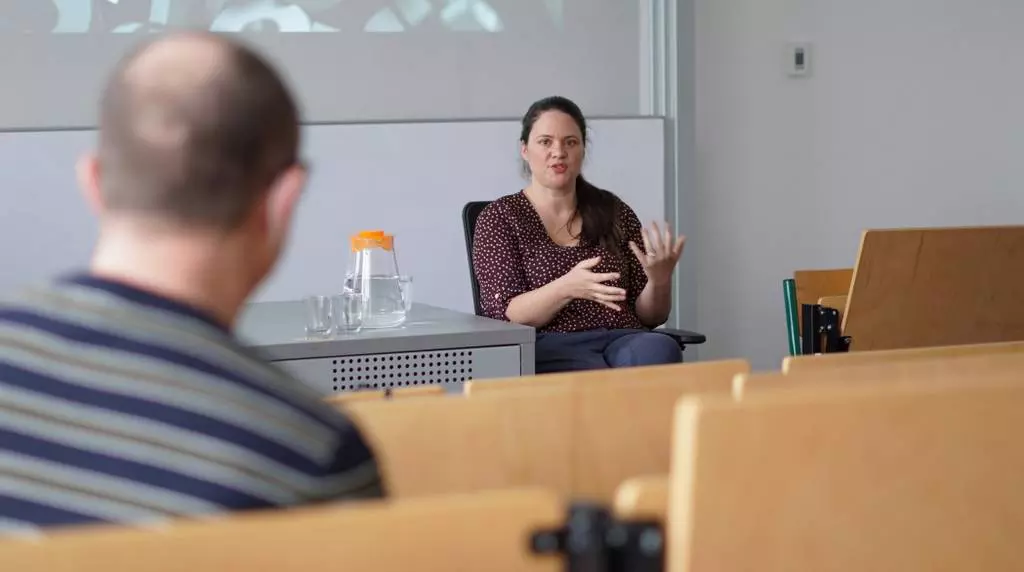
Photo: Tara, presenting at a public lecture, March 2022, Faculty of Economics and Administration, Masaryk University, Brno.
Since returning to the United States, I have begun to analyze all the data that I collected. As a researcher, some of the most exciting findings are the surprising ones, and sometimes unexpected themes emerge. There are a few that I can point to: the preliminary results from the survey suggest that Czech NGOs are internally focused; that is, they prioritize the perspectives of staff and beneficiaries in decision-making. While this is a welcome finding in some ways (as beneficiaries and staff are the most directly impacted by organizational decision-making), this internal focus also has interesting implications for how NGOs are viewed in the community and in broader Czech society.
For example, NGOs provide a significant number of services and community support in the Czech Republic; however, many Czech citizens are seemingly unaware that NGOs provide their social services. One of the consequences of this lack of visibility is that the reputation of the NGO sector is not as positive as one would expect. As I dig into the data further in the coming months, I look forward to more fully analyzing the data and publishing my results.
The research support that I received from my Czech colleagues at my host institution was extraordinary. I was honored to be a part of the Centre for Nonprofit Sector Research at the Faculty of Economics and Administration at Masaryk University. My colleagues were instrumental in connecting me with NGO and foundation leaders, assisting in translating the survey, and answering my many questions. Their support of my research and, more importantly, their friendship were among the best parts of my Fulbright experience. In addition, NGO leaders that I met through my research and teaching were very helpful in disseminating my survey and in suggesting people to interview.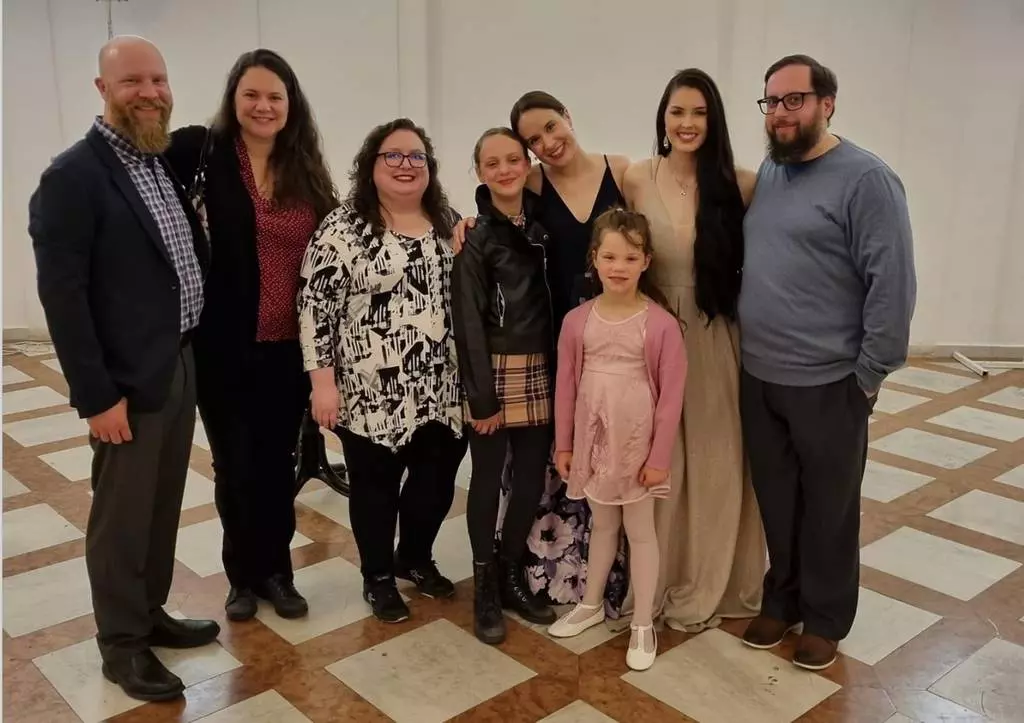
Photo: Tara and her family with fellow Fulbrighters after a concert performed by Bree Nichols and Isabel Keleti, Baroque Hall of the Governor’s Palace (Místodržitelský palác), April 2022, Brno.
My fellow Fulbrighters made the experience even more special, as I developed friendships and connections with others from different disciplines. I learned from their expertise about the art of Mucha (thanks, Erin!) and experienced Czech music in the most beautiful way (thanks, Isabel & Bree!). I also connected with a Fulbrighter serving in Hungary and invited her to Brno to give a public lecture.
On a personal level, the Fulbright experience deepened the relationships within my family. We experienced new surroundings, created new routines, ate new cuisines, and overcame obstacles that required us to depend on each other for support. Seeing this experience through our children's eyes was rewarding for my husband and me. This experience was the first time that our children had traveled to Europe, so everything was new. I remember my oldest daughter, while taking in the sights of Prague on our first night in the Czech Republic, said to me admiringly, "Mom – wow, everything is so beautiful here." This experience opened their eyes to a world they did not know existed. One of their favorite topics of conversation is where they will go to study abroad when they are in college, a conversation that would not have come up at this time had we not lived abroad.
Looking back on my Fulbright year, I am grateful for many things. Professionally, I made new connections and forged new lines of research. Personally, I learned so much about Czech culture and history and about myself. The most poignant things that I will take away from this experience are the relationships created and cultivated with my Czech colleagues and those with my family that were strengthened by our shared experience.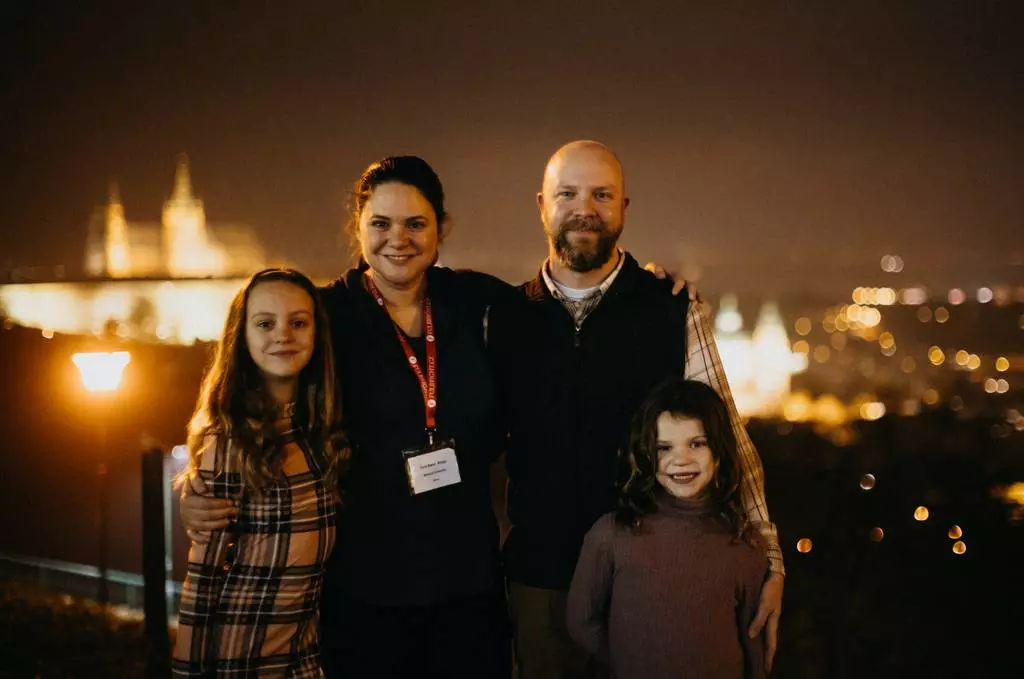
Photo: Tara, her husband Ben, and their two daughters Juliana and Vivian, November 2021, Prague.

Zdroj: Komise J. Williama Fulbrighta
Článek vyšel v červenci 2022 v rámci blogu Komise J. Williama Fulbrighta s názvem Fulbright Reality Czech.
- Autor článku: ne








































